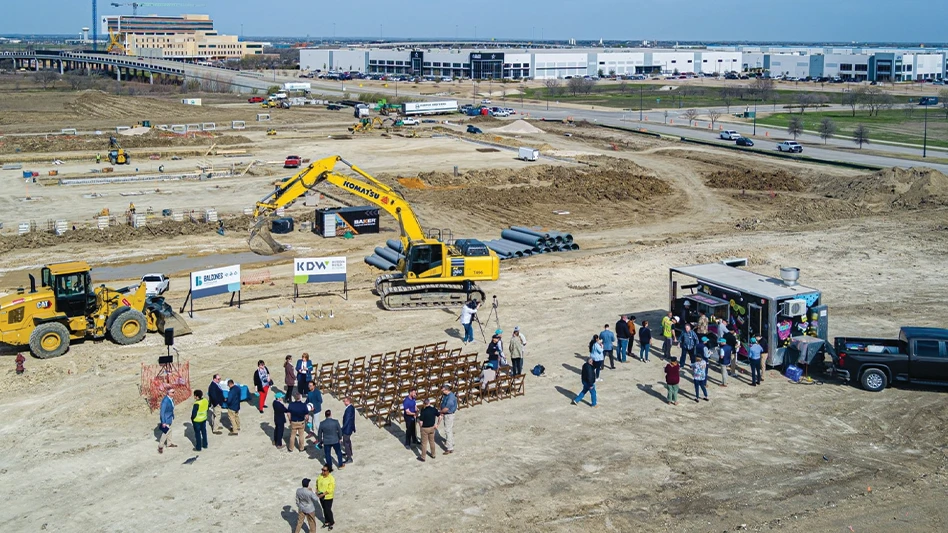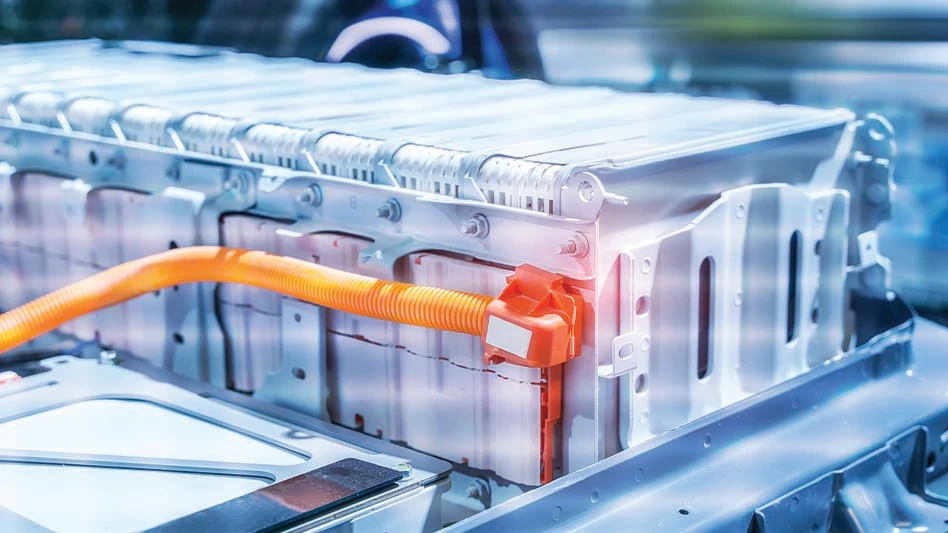 Shear/balers are highly sophisticated pieces of equipment made up of several mechanical systems and a number of components with narrow operating specifications.
Shear/balers are highly sophisticated pieces of equipment made up of several mechanical systems and a number of components with narrow operating specifications.
While these machines look robust and sturdy at first glance, their various components and systems actually make them more vulnerable than they appear.
Femco Machine Co., Punxsutawney, Pa., specializes in the installation, maintenance and repair of heavy industrial equipment, including shear/balers.
Joey McAdoo works for Femco Machine Co. in scrap and recycling sales and estimating. In the interview that follows with Recycling Today Managing Editor DeAnne Toto, McAdoo shares the insight he has learned from his many years of servicing such equipment in the field at a variety of scrap yards. He offers tips that could help recyclers improve the productivity and longevity of their shear/balers as well as advice to ensure the safe operation of this equipment.
Recycling Today (RT): What preventive maintenance tasks are commonly associated with shears?
Joey McAdoo (JM): Many issues can be associated with poor maintenance.
Changes and adjustments to the knives are common maintenance needs. Many people use their knife blades longer than they should due to the associated downtime and expense required to change-out the blades.
Another common issue results from not inspecting the grout foundation under machines, which, if problematic, can cause the frame to flex and crack.
Ultimately, proper lubrication and daily inspection of all wearable surfaces and pivot points can be the difference between a shear that cuts quickly with very little strain on the machine and one that struggles to produce cuts, which can extend production schedules and greatly reduce output.
A simple equipment maintenance slogan exists: “Grease is cheap; use it.”
RT: If recyclers fail to perform these preventive maintenance tasks, what is the toll on the machine’s productivity and machine longevity?
JM: Over time, machines wear down, creating issues with production efficiency. Basically, if the knives are dull, your machine is straining more to make a cut.
If liners are worn beyond OEM (original equipment manufacturer) clearances, excessive wear can greatly reduce the life time of the wearables and knives.
 RT: What are some common problems that can make a shear/baler less productive over its lifetime, and how can operators prevent them?
RT: What are some common problems that can make a shear/baler less productive over its lifetime, and how can operators prevent them?
JM: A shear is only as good as it cuts. As such, maintenance managers need to watch for signs of sinking productivity.
Some items to look for include low hydraulic pressure, poor knife seat adjustments, leaking cylinders, contaminated oil and excessive movement in pivot points and hinges, all of which can drastically reduce equipment output.
RT: What are some common indications that a machine’s hydraulics are in need of service?
JM: Common indications that a machine’s hydraulics need service include leaks, bad oil samples, slow operation, low hydraulic pressures, no cutting force and high oil temperature.
 RT: What are the most common causes of hydraulic cylinder failure?
RT: What are the most common causes of hydraulic cylinder failure?
JM: The common causes of hydraulic cylinder failure are liner wear that causes the shear to push out of line and bad knives and knife adjustments that make it necessary for increased cylinder pressure.
RT: Do you have any advice for scrap metal recyclers to ensure that they select a shear that is able to withstand the material they are processing?
JM: It really all depends on the material they are cutting, the machine tonnage required to process the material that will be purchased and the size of the finished raw material that the customer needs.
|
Field Work The field service team from Femco Machine Co., Punxsutawney, Pa., includes welders, mechanics and machinists. These trained technicians are qualified to work on most industrial equipment, according to the company. The team operates a fleet of “mobile machine shop” trucks that are equipped with line boring equipment, optical alignment devices, welding and cutting equipment, cranes, porta-powers and other tools required to quickly complete a job, Femco says. The mobile machine shop also provides the following capabilities:
|
JM: Broken frames, broken cylinders, excessive wear, bent sides, broken crossheads and foundation deterioration could result if the machine is too small or too light-duty.
When in doubt, up-size your machine to accommodate for future growth.
RT: When an operator is inattentive to the in-feed material, what are some of the worst-case results?
JM: Propane tanks blowing up, busted shear frames and busted blades, clamps and crossheads could result if an operator does not pay attention to the in-feed material.
RT: What are some behaviors that can result in a fatal or serious worker accident involving a shear?
JM: Poor operator training can lead to fatal or serious accidents.
During operation, you want to especially avoid standing in front of the shear or anywhere in proximity.
Anytime the crosshead, clamp or knife is having maintenance performed, all moving parts need to be pinned-off and the machine properly locked-down.
RT: How does cleanliness factor into performance and maintenance?
JM: A clean machine helps provide an easier and safer working environment and allows for quicker maintenance. It also makes it easier to spot oil leaks, which could be a leaking cylinder.
Essentially, if the machine is clean and is operating as intended, productivity should be high.
Usually, when we get to the machines, they are so broken and in disarray that customers don’t realize how inefficient the machines have been for them and how productive they can be once repaired and brought back to OEM specs.
Joey McAdoo works for Femco Machine Co., Punxsutawney, Pa., in scrap and recycling sales and estimating. More information on Femco is available at www.femcomachine.com.

Explore the April 2012 Issue
Check out more from this issue and find your next story to read.
Latest from Recycling Today
- Recycled steel price crosses $500 per ton threshold
- Smithers report looks at PCR plastic’s near-term prospects
- Plastics association quantifies US-EU trade dispute impacts
- Nucor expects slimmer profits in early 2025
- CP Group announces new senior vice president
- APR publishes Design Guide in French
- AmSty recorded first sales of PolyRenew Styrene in 2024
- PRE says EU’s plastic recycling industry at a breaking point





